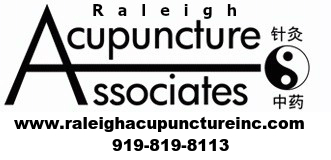
Words matter. In the tapestry of human experience, language not only serves as a medium for communication but also shapes our perception of reality and influences our understanding of ourselves and the world around us. Every word we utter carries with it the power to reinforce or reshape our experiences, particularly when it comes to matters as intimate and pervasive as pain and sickness. The way we articulate and internalize these phenomena can profoundly impact our ability to cope, heal, and ultimately thrive.
The Power of Ownership in Language
Consider for a moment the common phrases we use when describing discomfort or illness: “my headache,” “my stomach pain,” “my insomnia.” These seemingly innocuous possessive pronouns subtly imply ownership and identification with the affliction. “My” implies a sense of internalization—as though the pain or sickness is not just something happening to us but something inherently part of us. This linguistic framing can inadvertently reinforce a mindset where pain and illness become ingrained in our identity, rather than perceived as transient visitors.
Chinese Medicine Perspective: Pathogens and External Invasion
In Chinese medicine, pain and illness are often viewed through a different lens—one that emphasizes the concept of pathogens invading the body from external sources. According to this perspective, diseases are not inherent to the self but rather disturbances that disrupt the body’s harmony and balance. These pathogens—be they wind, cold, dampness, heat, or others—are seen as external forces that need to be expelled or harmonized to restore health.
Reframing Language: From Ownership to Observation
To align with this perspective, and because words matter, I propose a subtle yet powerful shift in language. Instead of saying “my headache,” one might say “this headache.” Rather than claiming “my stomach pain,” one could acknowledge “this stomach pain.” By using “this” instead of “my,” the focus shifts from ownership and internalization to observation and acknowledgment of the symptoms as separate from the self.
The implications of this linguistic reframing extend beyond semantics. When we distance ourselves from the language of ownership in relation to pain and illness, we open up space for a healthier psychological and emotional response. Rather than feeling overwhelmed or defined by our symptoms, we cultivate a mindset that allows for detachment and agency in managing our health.
Strengthening the Organs and Unblocking Channels: A Path to Wellness
In Chinese medicine, the treatment approach revolves around strengthening the body’s organs and unblocking the channels through which Qi (vital energy) flows. This holistic view emphasizes not just the physical symptoms but also the underlying imbalances that contribute to illness. By adopting a language that acknowledges symptoms as external disturbances, we align our verbal expressions with the principles of Chinese medicine, thereby supporting our journey toward healing and well-being.
Because words matter so much, the integration of this linguistic shift into everyday life can be transformative. When faced with discomfort or illness, consciously reframing our language can help us cultivate resilience and agency. Instead of succumbing to a narrative of suffering or victimhood, we empower ourselves to actively engage in the process of healing.
Cultural and Linguistic Sensitivity
It’s important to recognize that cultural and linguistic perspectives vary widely. While the principles of Chinese medicine offer valuable insights into reframing our relationship with pain and sickness, individual preferences and experiences should also be respected. The goal is not to impose a singular framework but to encourage mindfulness and intentionality in how we articulate our health-related experiences.
Conclusion: Harnessing the Power of Language for Health and Healing
In conclusion, the language we use to describe pain and sickness matters deeply. By reframing our expressions from ownership to observation, we shift our perception of these experiences and open up new possibilities for coping, healing, and resilience. To put it simply – words matter! Drawing on the wisdom of Chinese medicine, we can view pain and illness as temporary disruptions rather than permanent conditions. This perspective not only aligns with ancient healing traditions but also empowers us to envision a future where health and vitality are within reach.
As we navigate the complexities of health and wellness, let us remember the profound impact of words. By choosing our language mindfully, we can forge a path toward greater well-being—one where pain and sickness are acknowledged as transient visitors on our journey toward health, vitality, and wholeness.
Next Steps
The words we speak carry with them the power to influence our experiences, especially regarding pain and sickness. Therefore, the way we articulate and internalize these phenomena are bound to impact our ability to cope, heal, and thrive.
BOOK NOW to schedule an appointment online.
Meet the Practitioners (Video).
Learn about all the conditions we treat.
Focus Keyphrase: Words Matter
Image generated with https://perchance.org/ai-text-to-image-generator




